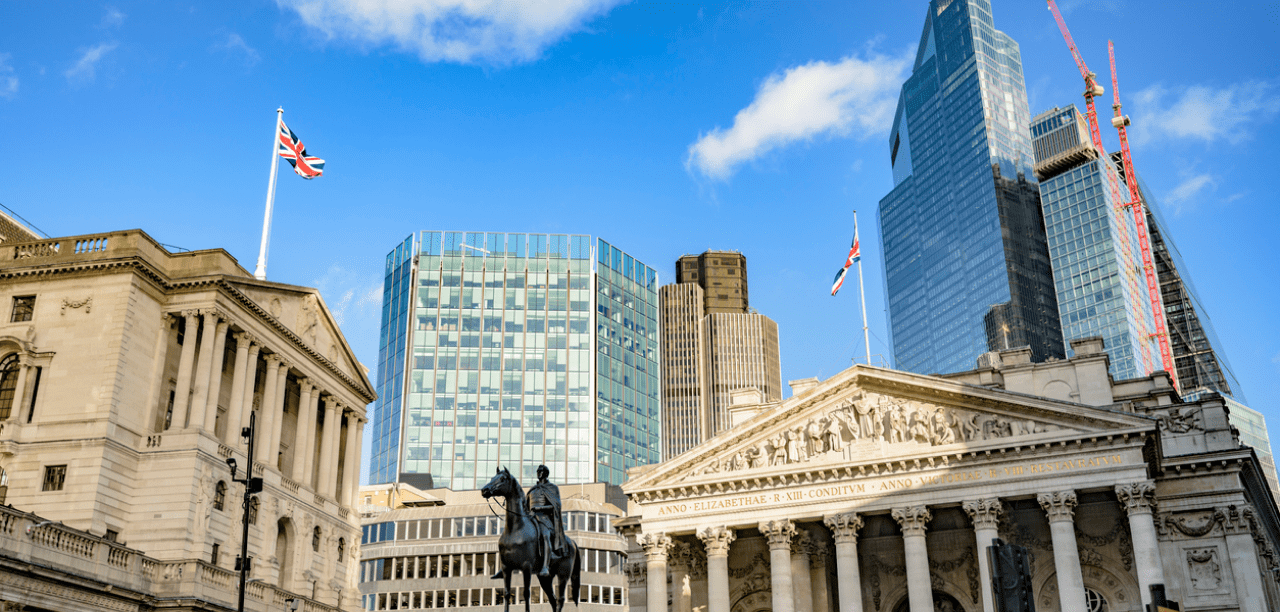The Bank of England’s base rate cut: are cheaper mortgages on the way?

Last month’s big news for homebuyers was a cut in the Bank of England’s base rate. This long-awaited reduction is already firing up London’s property market.
Before you start that all-important search for your next home, take a moment to find out what’s happened since the base rate went down.
How does the Bank of England’s base rate affect mortgages?
For more than three centuries, the Bank of England (BoE) has been setting a rate to control inflation.
The base rate (also known as the ‘bank rate’) sets the amount of interest the BoE pays to commercial banks whose money they hold. When the BoE rate changes, those major lenders adjust their rates accordingly, and this can affect the cost of your mortgage.
In 2021, mortgage rates fell to a record low level of 3.59 per cent, but following the Covid pandemic, they began to rise. Since then, the mini-budget global energy price has risen, and the war in Ukraine has driven inflation levels even higher. The BoE has increased the base rate in response, pushing up the cost of a mortgage.
Will mortgage costs go up or down this autumn?
In October 2022, inflation peaked at 11.1 per cent, and since then, the Bank has battled to cut it to just 2 per cent.
When that target was finally achieved in August, the BoE base rate was reduced from 5.25 per cent to 5.00 per cent. This reduction was small but significant, as it was the first cut since March 2020.
In a poll of economists recently conducted by the global news agency Reuters, the majority of respondents predicted there would be a further base rate cut in November.
During the summer, many major lenders began to cut their mortgage rates in anticipation of the BoE’s August announcement. If a late autumn base rate cut is on the way, we could see a further drop in the cost of mortgage deals happening well before November.
What are the current mortgage rates?
At the moment, the average rate for a five year, fixed-rate mortgage is below 5 per cent, while those for a two year, fixed-rate deal are a little over 5 per cent. Lower rates are available for buyers with larger than average deposits.
Mortgage lenders frequently alter the rates they offer their customers to reflect what is happening in the market. A mortgage broker will be able to alert you to the best deals as they become available.
Your broker will also be able to suggest a mortgage type that suits your financial circumstances, such as a variable rate, fixed rate or interest-only mortgage. A tracker mortgage with an interest rate collar can even provide a mortgage below the base rate.
How will cheaper mortgages affect the property market?
After the BoE’s quarter per cent cut to the base rate last month, it looks as if mortgage rates are now on a downward trajectory.
London’s property market is already experiencing a late summer boost. Going forward, there are several factors that could continue to stoke demand:
- Home movers returning to the market after waiting for mortgage rates to fall.
- Buyers eager to make a purchase before prices rise again, following a year that saw values drop in many areas.
- Greater certainty and stability with a new government in place.
- The ‘autumn bounce’ traditionally seen at this time of the year.
It’s worth noting that UK buyers are currently paying almost 97% of the asking price, an indication that confidence is high.
Are house prices set to rise?
The UK House Price Index reports that average London property values dropped by 3.4% in the year to March 2024. However, Zoopla predicts that by the end of the year prices in the capital will have risen by 2%.
Of course, the capital’s housing market shouldn’t be considered as a single entity. It’s more helpful to consider London as a series of ‘mini markets’, each with its own distinct identity and values. For example, between June 2023 and June 2024, average house prices fell by 22 per cent in Westminster. In the same period, Southwark prices dropped by 2.5 per cent, and Lambeth saw no change.
Going forward, price rises could be subject to a similar range of variations, depending on the level of demand in each area.
Is now a good time to buy?
Our sales teams in Westminster, London Bridge and Kennington are already seeing more activity than usual at this time of the year.
As mortgage rates become more affordable and confidence returns to the market, there is a high likelihood that property values will start to rise. Buyers who act early could potentially benefit from lower prices.
If you are thinking of moving home in central London, why not get in touch with us now to kickstart your home search?



